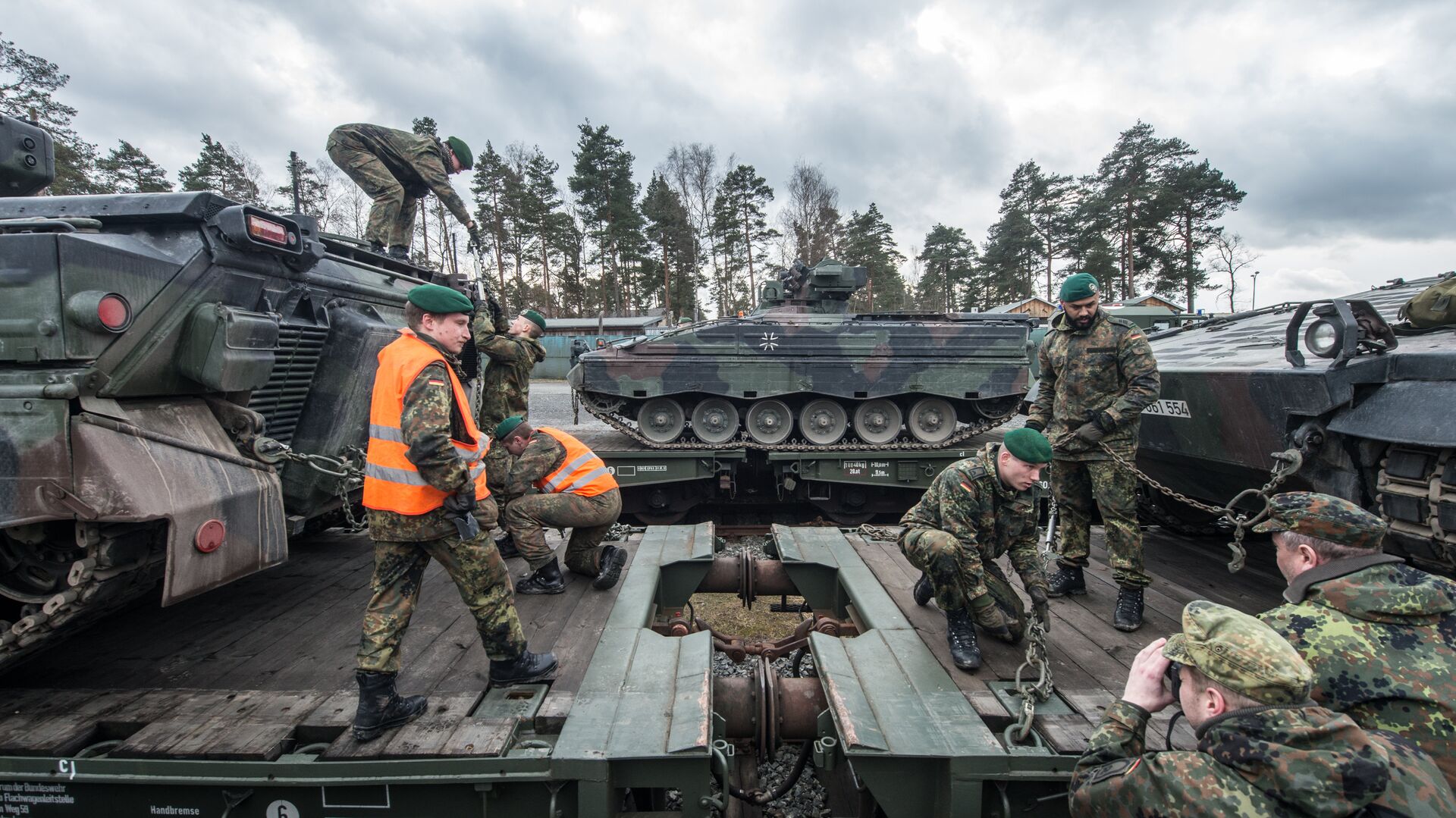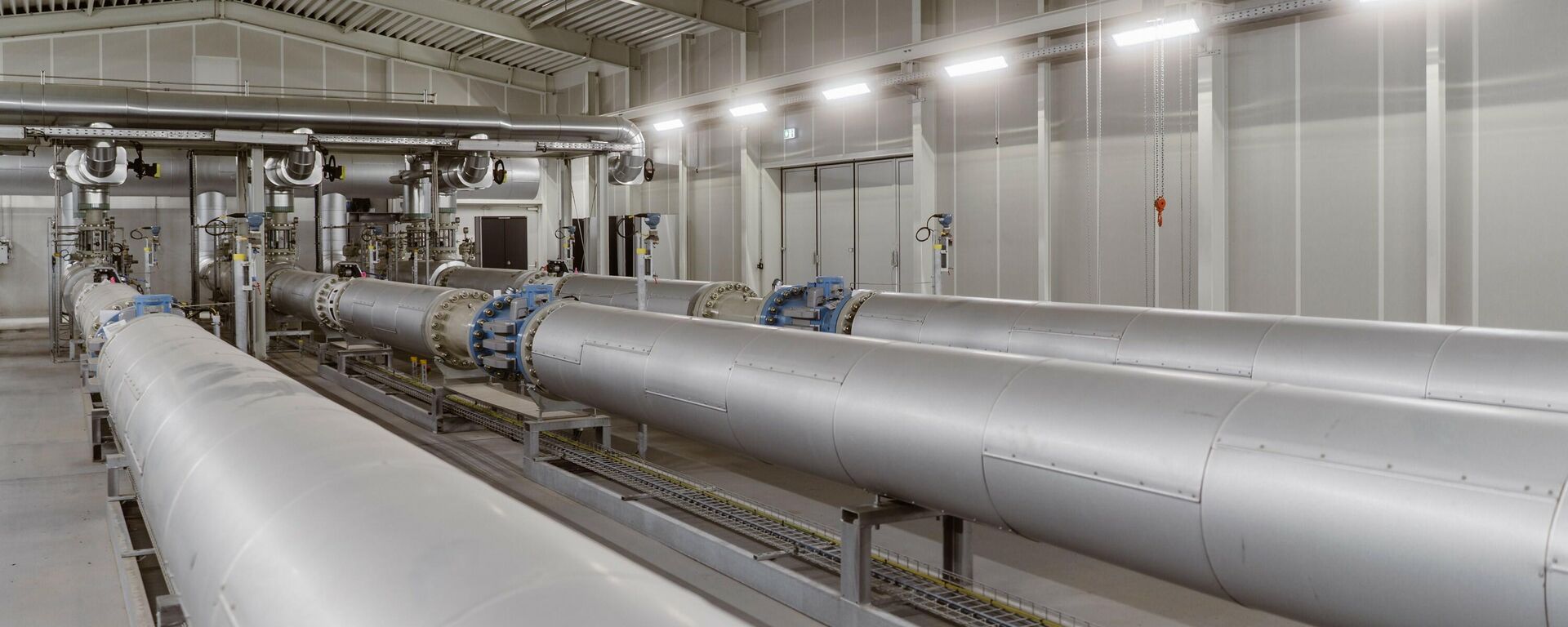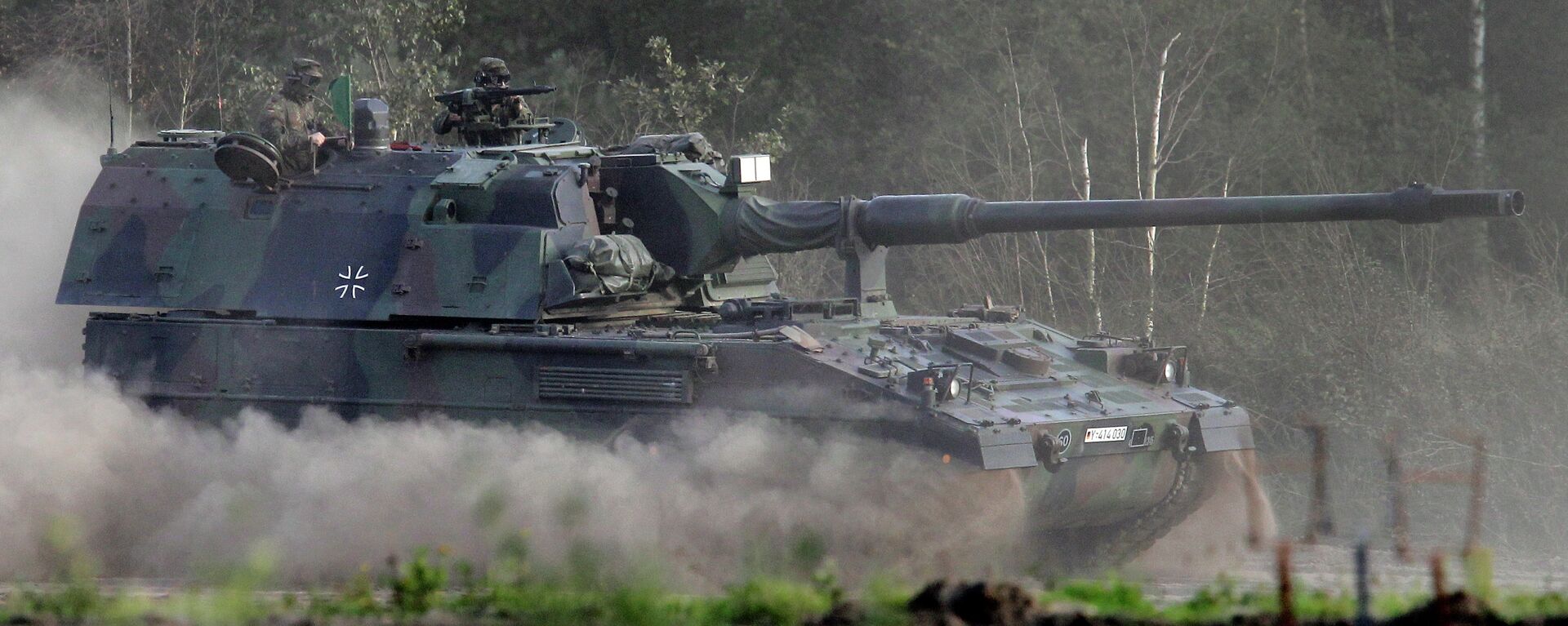https://sputnikglobe.com/20220621/scholz-rejects-kievs-attacks-over-pace-of-arms-transfers-says-weapons-arent-cars-from-dealers-1096530445.html
Scholz Rejects Kiev’s Attacks Over Pace of Arms Transfers, Says Weapons Aren’t ‘Cars From Dealers’
Scholz Rejects Kiev’s Attacks Over Pace of Arms Transfers, Says Weapons Aren’t ‘Cars From Dealers’
Sputnik International
Officials in Kiev and the Ukrainian ambassador in Berlin have repeatedly attacked the chancellor for alleged foot-dragging on the sending of heavy weapons to... 21.06.2022, Sputnik International
2022-06-21T13:59+0000
2022-06-21T13:59+0000
2022-10-19T20:56+0000
germany
olaf scholz
weapons
ukraine
https://cdn1.img.sputnikglobe.com/img/105210/92/1052109270_0:361:6882:4232_1920x0_80_0_0_aa3185b8ad9faa7194c5f82a5e7029eb.jpg
German Chancellor Olaf Scholz has rejected allegations that his government isn’t delivering on its promised weapons for Ukraine, insisting that Berlin is supporting Kiev to the best of its ability.“Some underestimate the complexity of the matter. If we provide the most modern weapons systems, such as self-propelled howitzers or complex anti-aircraft systems, soldiers must also be well trained. Otherwise these weapons will be ineffective. And for some systems, the appropriate ammunition must be organized,” the chancellor said.Justifying his policies, Scholz pointed to ongoing training of Ukrainian troops on the use of the Panzerhaubitze 2000 155 mm howitzer and Flakpanzer Gepard anti-aircraft tank. “In addition, together with the US and Britain, we are supplying Ukraine with modern multiple rocket launchers, which are urgently needed, and the modern anti-aircraft system IRIS-T. As you can see, we are delivering what is needed and what helps,” he insisted.Along with the military aid, Scholz pointed to Berlin’s large-scale financial support for Kiev, its decision to take in over 800,000 refugees, and support for the European Union’s anti-Russian sanctions. “We’ll hold out for as long as it takes,” he promised, stressing that a peace in Ukraine “dictated” by “Putin’s grace” would be unacceptable.“We are working against Russia with the help of unprecedentedly tough sanctions. Yes, they are painful for us and for our companies. But they were the right thing to do. Freedom has its own price, democracy has its own price, solidarity with friends and allies has its own price. We are prepared to pay this price,” the chancellor said.German businesses and ordinary Germans are already feeling the consequences of EU efforts to “phase out” Russian energy and fertilizers. A survey conducted by a respected pollster for Bild last week found that a shocking one in six Germans is being forced to skip meals to make ends meet, with 42 percent also indicating that they have been forced to cook more sparingly thanks to skyrocketing food costs. In May, Deutsche Wirtschafts Nachrichten reported that farmers expect to lose some 3 million tons-worth of harvest thanks to Brussels’ Ukraine-related sanctions on Russia and Belarus. In April, the CEO of German chemical giant BASF warned that the “highly irresponsible experiment” of cutting off access to Russian energy could spark “the worst crisis for the German economy since the end of World War II.”Despite its march in lockstep with its US and EU allies in providing assistance to Kiev while sanctioning Moscow, Germany has faced continued criticism from Ukrainian officials for the alleged slow pace of its delivery of heavy weapons systems to Ukraine.Last week, Welt reported that German Defense Minister Christine Lambrecht sidestep her Ukrainian counterpart Oleksii Reznikov's questions about when the MARS II guided MLRS systems promised by Berlin would arrive, and ignored his requests for Marder infantry fighting vehicles and Leopard main battle tanks.The refurbished Flakpanzer Gepards, Panzerhaubitze 2000 howitzers and IRIS-T air defense systems promised have yet to be delivered. Last week, Business Insider Germany reported that “massive problems” with all of these systems were causing delays to their deployment. Germany has also reportedly been met feuded with its EU partners on arms for Ukraine, blocking a Spanish request to send Leopards to the country, and failing to get Athens to agree to send its Soviet-era BMP-1P IFVs to Ukraine until 50 Marders promised by Berlin arrive in Greece.Last Monday, Ukrainian Ambassador to Germany Andriy Melnyk issued a fresh attack against the Scholz government, saying Kiev wonders whether German solidarity is “worth something, or not even a cent” amid the held up weapons deliveries, and simultaneous German payments of hundreds of millions of euros daily to Russia for energy.
https://sputnikglobe.com/20220621/europe-can-replace-russian-gas-by-turning-thermostat-down-a-couple-degrees---von-der-leyen-1096520995.html
https://sputnikglobe.com/20220613/berlin-reportedly-snubs-kievs-request-for-arms-as-ukraine-complains-about-german-payments-to-russia-1096278929.html
germany
ukraine
Sputnik International
feedback@sputniknews.com
+74956456601
MIA „Rosiya Segodnya“
2022
News
en_EN
Sputnik International
feedback@sputniknews.com
+74956456601
MIA „Rosiya Segodnya“
Sputnik International
feedback@sputniknews.com
+74956456601
MIA „Rosiya Segodnya“
germany, olaf scholz, weapons, ukraine
germany, olaf scholz, weapons, ukraine
Scholz Rejects Kiev’s Attacks Over Pace of Arms Transfers, Says Weapons Aren’t ‘Cars From Dealers’
13:59 GMT 21.06.2022 (Updated: 20:56 GMT 19.10.2022) Officials in Kiev and the Ukrainian ambassador in Berlin have repeatedly attacked the chancellor for alleged foot-dragging on the sending of heavy weapons to Ukraine.
German Chancellor Olaf Scholz has rejected allegations that his government isn’t delivering on its promised weapons for Ukraine, insisting that Berlin is supporting Kiev to the best of its ability.
“Anyone who thinks that weapons of war are available like cars from a dealer is wrong. I am aware that I must endure criticism. But I will not let myself be diverted from a level-headed course,” Scholz
said, speaking to Merkur.de in an interview published Tuesday.
“Some underestimate the complexity of the matter. If we provide the most modern weapons systems, such as self-propelled howitzers or complex anti-aircraft systems, soldiers must also be well trained. Otherwise these weapons will be ineffective. And for some systems, the appropriate ammunition must be organized,” the chancellor said.
Justifying his policies, Scholz pointed to ongoing training of Ukrainian troops on the use of the Panzerhaubitze 2000 155 mm howitzer and Flakpanzer Gepard anti-aircraft tank. “In addition, together with the US and Britain, we are supplying Ukraine with modern multiple rocket launchers, which are urgently needed, and the modern anti-aircraft system IRIS-T. As you can see, we are delivering what is needed and what helps,” he insisted.
Along with the military aid, Scholz pointed to Berlin’s large-scale financial support for Kiev, its decision to take in over 800,000 refugees, and support for the European Union’s anti-Russian sanctions. “We’ll hold out for as long as it takes,” he promised, stressing that a peace in Ukraine “dictated” by “Putin’s grace” would be unacceptable.
Speaking at a Federation of German Industries conference on Tuesday, Scholz admitted that sanctions on Russia were costing Germany’s own economy, but suggesting that such 'spending' was worth it to defend “freedom.”
“We are working against Russia with the help of unprecedentedly tough sanctions. Yes, they are painful for us and for our companies. But they were the right thing to do. Freedom has its own price, democracy has its own price, solidarity with friends and allies has its own price. We are prepared to pay this price,” the chancellor
said.
German businesses and ordinary Germans are already feeling the consequences of EU efforts to “phase out” Russian energy and fertilizers. A survey conducted by a respected pollster for Bild last week found that a shocking
one in six Germans is being forced to skip meals to make ends meet, with 42 percent also indicating that they have been forced to cook more sparingly thanks to skyrocketing food costs. In May, Deutsche Wirtschafts Nachrichten reported that farmers expect to lose some
3 million tons-worth of harvest thanks to Brussels’ Ukraine-related sanctions on Russia and Belarus. In April, the CEO of German chemical giant BASF
warned that the “highly irresponsible experiment” of cutting off access to Russian energy could spark “the worst crisis for the German economy since the end of World War II.”
Despite its march in lockstep with its US and EU allies in providing assistance to Kiev while sanctioning Moscow, Germany has faced
continued criticism from Ukrainian officials for the alleged slow pace of its delivery of heavy weapons systems to Ukraine.
Last week, Welt
reported that German Defense Minister Christine Lambrecht sidestep her Ukrainian counterpart Oleksii Reznikov's questions about when the MARS II guided MLRS systems promised by Berlin would arrive, and ignored his requests for Marder infantry fighting vehicles and Leopard main battle tanks.
The refurbished Flakpanzer Gepards, Panzerhaubitze 2000 howitzers and IRIS-T air defense systems promised have yet to be delivered. Last week, Business Insider Germany reported that
“massive problems” with all of these systems were causing delays to their deployment. Germany has also reportedly been met feuded with its EU partners on arms for Ukraine, blocking a Spanish request to send Leopards to the country, and failing to get Athens to agree to send its Soviet-era BMP-1P IFVs to Ukraine until 50 Marders promised by Berlin arrive in Greece.
Last Monday, Ukrainian Ambassador to Germany Andriy Melnyk issued a fresh attack against the Scholz government, saying
Kiev wonders whether German solidarity is “worth something, or not even a cent” amid the held up weapons deliveries, and simultaneous German payments of hundreds of millions of euros daily to Russia for energy.





